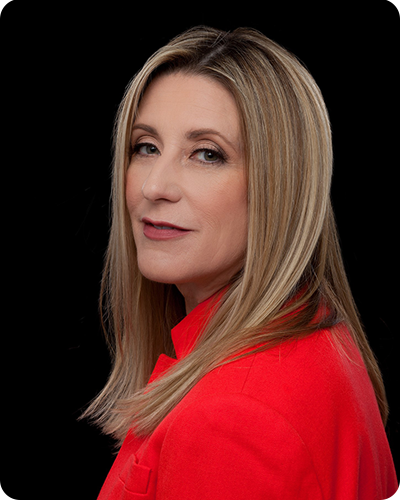Safe — and Sound

Subscribe to Catalyst
Subscribe to get our magazine delivered right to your inbox
Related Articles
Subscribe to Catalyst
Subscribe to get our magazine delivered right to your inbox
Related Articles
Putting psychological safety and physical safety on equal footing makes for good policy and practice. A look at changing the narrative within the oil and gas sectors
When the language of isolation, quarantine, and lockdown predominates, there isn’t much room for words like socialize, connect, or empathize. Yet even though the pandemic has made our workplaces more prone than ever to stress and anxiety, creating a culture that gives workers the confidence to ask for mental health support has always been a challenge.
Steve Tizzard knows first-hand what the experience of stigma toward mental health problems at work looks like. He has worked at Hibernia, an oil platform on the Grand Banks of Newfoundland and Labrador, for 25 years and has been front and centre during the company’s shift toward supporting mental wellness.
Tizzard characterizes the earlier stigmatizing attitudes in stark terms:
“You have depression? Go home, you cannot cut it in this industry. You have anxiety? Suck it up, partner, don’t let anyone else hear you say that! Relationship problems? Financial problems? Addiction? All part of the industry. You’re a rough and tumble oil-rig worker; these things cannot affect you!” —As a result, workers often felt they needed to hide their problems and didn’t feel they could ask for help.
Today, of course, these attitudes are giving way. More and more employers understand that mental health problems can affect anyone, no matter what position or industry they’re in, and as Tizzard points out, help is only a conversation away. Teaching workers that it’s OK to let another worker know they’re struggling, having a bad day, or are in crisis — while knowing they will not be judged — is a powerful tool in a workplace.
This simple approach has worked for many Hibernia employees, and its power, Tizzard said, comes from the fact that it is led by workers themselves. Instead of relying on professional supports alone, workers know that others are ready to listen and assist, if necessary. His experience has also taught him that this method may be more effective and immediate than conventional strategies in workplace psychological safety.
He passionately believes in the power of sharing lived experience in open dialogue during workplace safety meetings. “We need to constantly find ways to discuss mental health in the same way as physical health in our workplaces,” he said. By educating workers, saying the words “mental health” in safety meetings and including them in occupational health and safety initiatives, stigma can be reduced.
That said, putting psychological safety on par with physical safety can still be a challenge. As Tizzard puts it, “for some organizations it’s OK to have a sprained ankle but not anxiety. It’s acceptable to bring physical safety issues to the forefront of the workplace agenda but not concerns about psychological safety.”
Despite such challenges, his active support of psychological health and safety at Hibernia has helped it make significant strides. In 2015, the Hibernia wellness committee Tizzard founded was recognized by Canada’s Safest Employers, which awarded the company a gold medal for psychological safety.
When asked what others might look out for when seeking to establish a psychologically safe workplace culture, he said, “any advocate or passionate worker ready to implement a workplace program will need to know it’s not a smooth road much of the time. At first, stigma will always be the main factor in gaining momentum, but the mindset of workers and managers can also hinder success.”
For a program to succeed, Tizzard added, many factors need to line up. What is essential is having a foundation of support from ownership, management, occupational health and safety, and of course, workers themselves. Some of the tools Hibernia is using include micro-learning, wellness boards, and Mental Health First Aid (MHFA) training.
MHFA is a Mental Health Commission of Canada program that teaches people how to offer help to someone who is developing a mental health problem or experiencing a mental health crisis or worsening mental health. Since 2007, almost 600,000 people in Canada have been trained.
According to Tizzard, by combining the right information and skills with an open mind, “trained and caring workers on our shop floors can be so effective in reducing physical and mental injury. It’s an avenue for help that many might not think could exist, but it can be the front-line resource for people in need. I live it every single day.”
Steve Tizzard has worked on the Hibernia platform since 1997, for the last 22 years in a communications, weather, and ice-management capacity. He is the founding member of the offshore wellness committee that serves workers in the oil and gas industry. Apart from the gold medal in psychological safety Hibernia received in 2015, it earned the CM Hincks Workplace Award in 2017 from the Canadian Mental Health Association for excellence in fostering workplace mental health. Steve is also an MHFA instructor and is certified as a psychological health and safety advisor. To learn more about his work, visit www.allthebestconsulting.com.

Nicole Chevrier
An avid writer and photographer. A first-time author, she recently published her first children’s book to help children who are experiencing bullying. When she isn’t at her desk, Nicole loves to spend her time doing yoga and meditation, ballroom dancing, hiking, and celebrating nature with photography. She is a collector of sunset moments.




